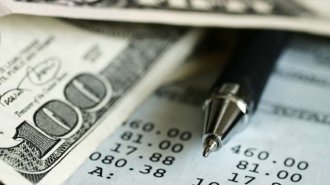
Whether you reach a stage where you want to exercise your right to purchase the car or simply want to determine whether the leasing process is worthwhile, it is useful to understand how the lease residual value of your car is calculated.
See the latest car lease deals >>
Definition
A lease residual value is also known as lease-end value. Or, an estimate of what the leased car will be worth at the termination of the lease. It takes into account the original value of the vehicle as well how it is affected by depreciation. An easy way to think about it is that the residual value must be deducted from the total value to determine what you will pay the lessor.
Purpose
One of the purposes for calculating a lease residual value is to simply be aware of what the car will be worth at the end of the term of the lease. However, a more important use for it is in calculating the rate that will be used within the lease, which will decide the figures for your monthly payments. Not only can they help you to determine what you can expect to pay per month during the lease, you can also determine what will be charged in the event that you seek to make a purchase of the vehicle. It is also effective at helping you to find which vehicle retains its value the best.
Calculation
The calculations for the lease residual value are not set in stone, and can vary from one lessor to another despite there being an industry standard. You will find that the dealership used does not have the ability to vary the terms relating the value. Rather this is the duty of the financial institution contracted under the car lease. It is applied to the value of the car as a percentage. For example, a $10,000 car that has a residual value factor of 50 percent will be worth $5,000 at the end of the lease. All of the calculations made are always estimates, as precise predictions and changes to the market cannot be made. The original value of the vehicle is used, even if you have negotiated it down.
Comparisons
The easiest way to compare the lease residual value offered by different lessors is with the use of the same type of car. This will ensure that the vehicle is of around the same value and other aspects are alike. You will find that the higher the residual value, the less you will be required to pay in monthly installments. However, this will bring with it a higher sum to pay if you choose to make a purchase at the end of the lease term. The opposite of this is also true in that a lower residual value will mean higher monthly payments.
If you're thinking of buying out your vehicle from the lease or negotiating an early end to your lease agreement, you need to calculate the residual value to get an accurate idea of how much the car is worth. In order to calculate this value, you'll need a bit of information about the car and an online residual value calculator.
Gather Information about the Car
You need to know the exact make, model, year and trim type of the car in question. You should also know its initial condition and type. Put these pieces of information into the residual value calculator to determine how much the car has declined in value since you started driving it. Also enter the amount of time you've driven the car, the number of miles, any accidents or other damage that has occurred and similar information.
Subtract the Depreciated Value from the Original Value
Look up the original value of the car in your lease terms or in the Kelley Blue Book. Subtract the calculated depreciation value for the car from the original value of the vehicle. This new result is the total residual value of the car. In other words, it is the current value of the car after you've used it for a period of time.
When Leasing a Car, What is the Residual Value?
The car lease residual value is the dollar amount that you can purchase the vehicle for at the end of the lease. When a lease ends, you can either return the vehicle to the dealership or you can purchase it for a set amount. This amount is referred to as the residual value. The residual value is set at the beginning of the lease so you are aware of the buyout price when you sign the lease. The residual value is set by the bank or finance company that is writing the lease. Residual values are not negotiable under most circumstances.
Is the Residual Value in a Car Lease Negotiable?
When negotiating a car lease, the residual value is very rarely something that can be negotiated. The residual value is the amount the vehicle can be purchased for at the end of the lease. A leased vehicle can either be returned at the end of the lease or purchased. The residual value is set by the bank or finance company writing the lease, and under most circumstances, the residual value is not negotiable. It is a good idea to look closely at the residual value. Finance companies will often keep the residual value artificially high so they can offer lower monthly payments. If you plan on purchasing the vehicle the residual should be a consideration when comparing leases.